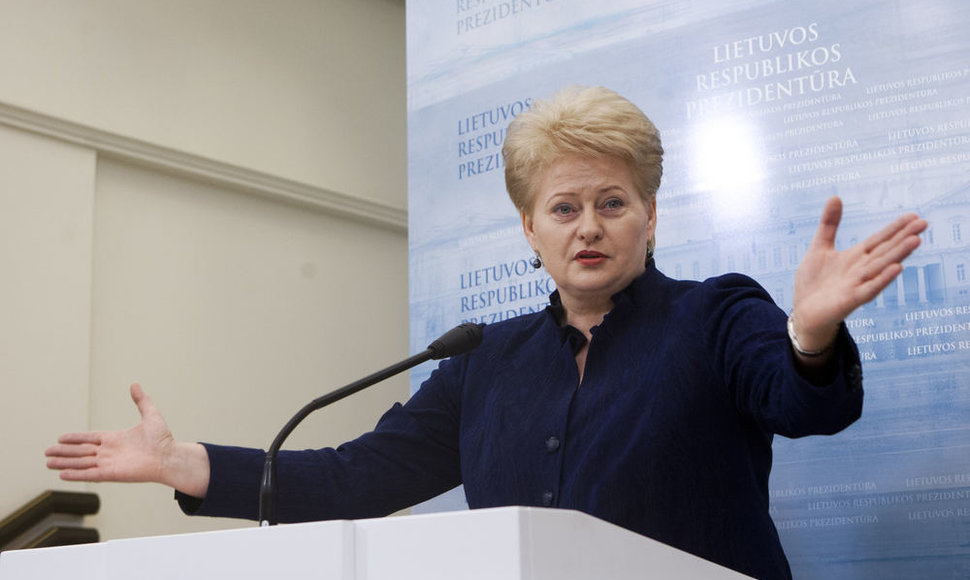She also made it clear that coalition possibilities were discussed with the Homeland Union – Lithuanian Christian Democrats (conservatives) who were second in the October elections. Conservative leader, outgoing Prime Minister Andrius Kubilius, says there were “informal discussions” about forming the ruling majority.
"I do not want to discuss specific names now," Grybauskaitė told journalists in Rūkla, Jonava district, on Wednesday.
"If the future prime minister is approved in parliament, we will speak to him about specific candidates as soon as we are able to do so, i.e., after the clock starts ticking, over the 15 days after his approval. It is still too early," Grybauskaitė said.
She stressed that the candidates would be required to be professional and transparent, furthermore, speak foreign languages that will be necessary for Lithuania's presidency over the European Union (EU) in the second half of 2013.
"The main requirements for ministers will include professionalism and familiarity with the field they want to come to, transparency, i.e., absence of a conflict of interests, and command of one of the three working languages of the EU, as the minister will have to be the leader of all EU ministers in the field and the entire sector in the second half of 2013. This requirement will also be very important," the president said.
EU's three working languages are English, French, and German.
Asked to comment on her earlier statement that it was not only the Social Democratic Party that was asked to form the ruling majority, Grybauskaitė indirectly hinted that the proposal had also been made to the conservatives who were second in terms of the number of mandates.
"I can say that all winners of the first places had the opportunity, they were all spoken to," the president said.
Asked to specify, she referred to the first and the second places: "The first and the second places are always among the winners." Nevertheless, she emphasized that only the Social Democrats succeeded in forming the majority.
"There were informal discussions but we had a precondition – a coalition without the Labour Party," Virgis Valentinavičius, adviser to the Lithuanian prime minister, cited his answer to BNS on Wednesday.
Asked about the possibility of approving a government without a few ministers, the president replied: "You must have noticed that the president exercises all options allowed by the law."
If Butkevičius gets an endorsement from parliament to become prime minister, he will have 15 days to submit a president-approved cabinet composition and program to the Seimas.
A new government gets a mandate to work after approval of its program by the majority of MPs present at a meeting.












